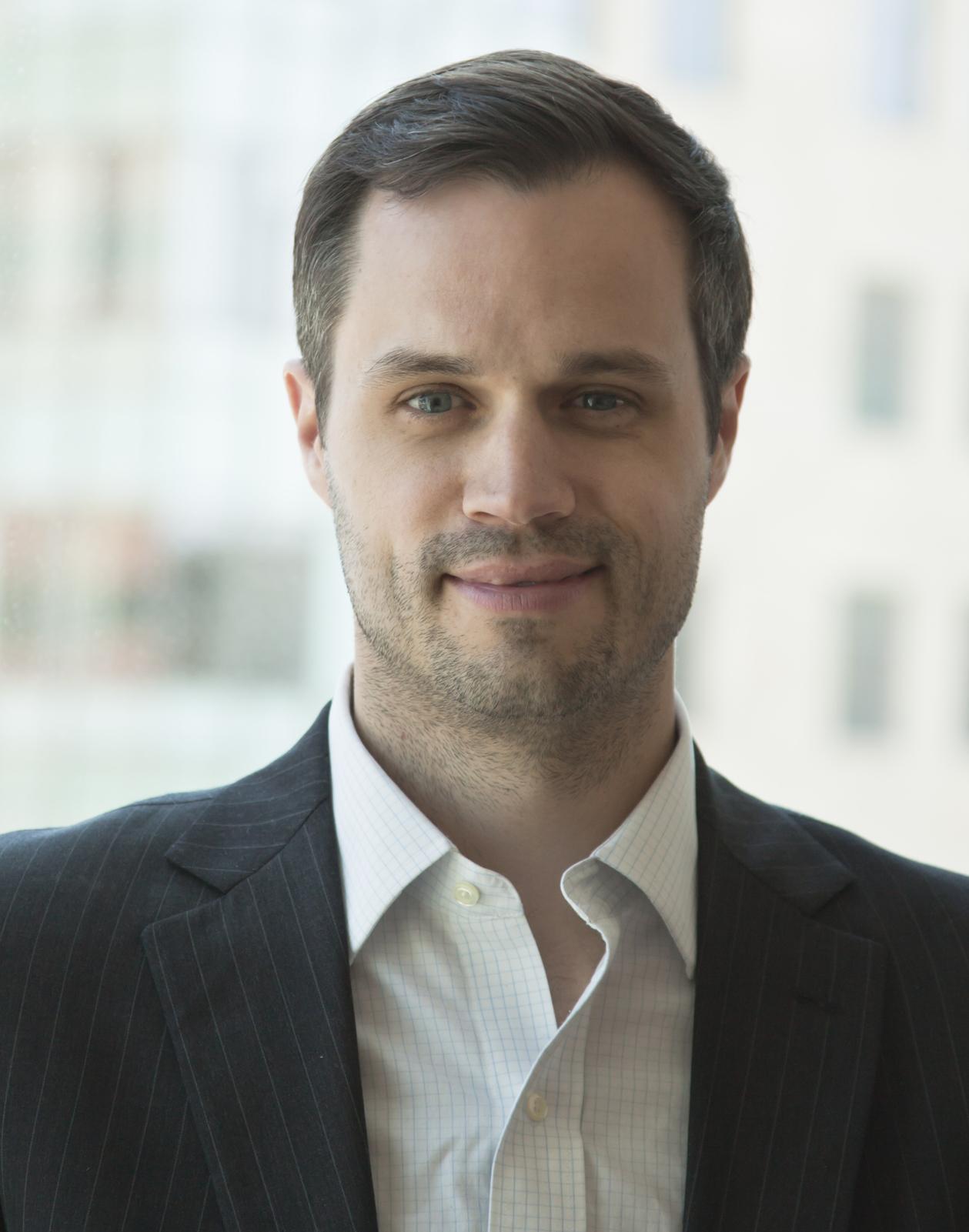Anderson Kicks Off Entrepreneur-In-Residence Program
The co-founder of biotech firm ADiMaB began his month-long residence with a conversation with students.
The co-founder of biotech firm Adimab began his month-long residence with a conversation with students.

If the dozens of students in the room were wondering how a person just five years out of business school could be so successful in such a technical field, they were probably stunned to learn that ADiMaB isn’t the only business Anderson is involved with. Indeed, he had a hand in developing Gyrobike with Daniella Reichstetter T’07 and ATDynamics with Andrew Smith T’07; he’s a co-owner, with a handful of Tuck alumni, of the Norwich restaurant Carpenter and Main; he’s co-owner, with a few Dartmouth classmates, of the Bagel Basement, in Hanover; and he’s co-founder of Arsansis, Inc., a biotech firm with operations in the U.S. and Vienna, Austria. The list of Anderson’s ventures goes on, but you get the point: Anderson lives and breathes entrepreneurship.
The common thread among all of Anderson’s entrepreneurial activity is the Dartmouth network. That thread is self-evident in most of the above-mentioned businesses, but not with Adimab. Anderson founded that company with Thayer professor Tillman Gerngross, who sold his biotech firm GlycoFi to Merck & Co. in 2006. (Anderson studied bioengineering with Gerngross, starting in 2003. He met Gerngross through economics professors he knew from his days at Dartmouth.) “For the early fundraising and first deals, I mostly rode Tillman’s coattails from GlycoFi,” Anderson was quick to admit. They co-founded Arsanis too, setting it up as a ready customer for Adimab’s antibodies. “I can’t overstate how critical the Dartmouth network has been,” he told the audience. “I’ve made hundreds of cold-calls and emails to Dartmouth people and no one, to this day, has ever turned me down.”
Perhaps equally important to Anderson’s success, he said, were the work ethic and open-mindedness he cultivated at Tuck. He met with visiting executives every chance he got. He never hesitated to jump into a project. The commonality he noticed between himself and people like Reichstetter and Smith was that “we just started doing something and we weren’t afraid to waste our time on bad ideas,” he said. “Most people think you need a really good idea to start a company. Andrew Smith started with the terribly vague idea of wanting to save the environment. But eventually, after lots of research and brainstorming, he came up with something.” Smith’s company, ATDynamics, manufactures aerodynamic add-ons for tractor trailers that, so far, have saved more than 1.5 million gallons of fuel.
Reichstetter, he said, didn’t start working on Gyrobike with the expectation that it would become a successful business. That product started with Dartmouth undergraduates, then became the subject of a First-Year Project (FYP) course that Reichstetter signed up for at Tuck. “The FYP is a great chance to work on someone else’s problem,” Anderson advised. “I wouldn’t get too hung up on working on something you think will be a huge company. Just work on anything, and work on as many as possible.”
Before Anderson dove full time into Adimab he did his summer internship in marketing for Bristol-Myers Squibb (BMS). Working in a large corporation can be good experience, he said, even if being an entrepreneur is your ultimate goal. While at BMS, for example, Anderson used his credentials to speak with researchers at firms who wouldn’t have given him the time of day if he were an independent person. He then used that knowledge to inform his work at Adimab.
A related lesson: don’t rush into a startup if you can’t find the right fit. “The mistake you can make is to join a startup because you fall in love with the technology but you hate the team,” he said. “If you join any team, make sure you like the people, whether at a big or small company.”
After his talk, Anderson had half-hour, face-to-face meetings with students, then had dinner with more students. As the Entrepreneur-in-Residence, he has “office hours” in person, via email, or by phone for about a month, during which students can ask him entrepreneurship-related questions. The program flowed from the desire to provide more extra curricular entrepreneurship support for students. “We wanted to increase students’ exposure to your classic entrepreneur,” said Joaquin Villarreal T’08, manager of the Entrepreneurship Initiative. “It’s the person who has an idea, has no money, and tries to pull it off. Those are usually the most fun for students to hear, and it’s a story they can relate to.”